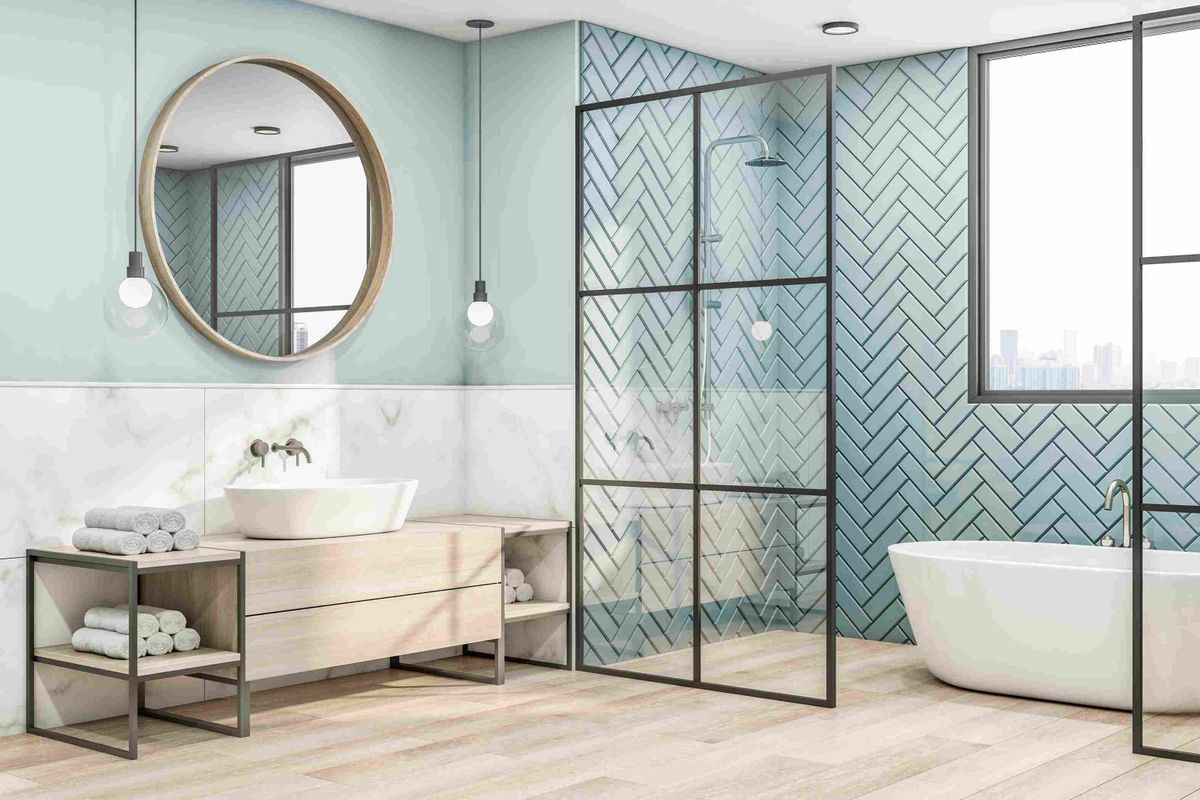
Bathroom partitions play a crucial role in both public and private restroom facilities, offering privacy, organization, and enhanced functionality. Whether for commercial establishments, educational institutions, or residential homes, the right bathroom partitions can significantly impact the overall user experience. This article explores the benefits, types, and considerations of bathroom partitions, providing a comprehensive guide for selecting and installing the most suitable solutions.
1. Benefits of Bathroom Partitions
a. Enhanced Privacy
The primary function of bathroom partitions is to provide privacy for users. By separating individual stalls, partitions ensure that each user has a designated space, minimizing the possibility of accidental exposure. This is particularly important in public restrooms where privacy is a top priority. Effective partitions contribute to a more comfortable and respectful environment.
b. Improved Hygiene
Bathroom partitions help maintain cleanliness and hygiene by containing each stall’s use to its own space. This separation helps in reducing the spread of germs and contaminants, making it easier to manage cleanliness. Additionally, partitions can be designed with materials that are easy to clean and resistant to moisture, enhancing overall hygiene standards.
c. Space Optimization
In both small and large bathrooms, partitions contribute to efficient space utilization. By dividing a single restroom into multiple functional areas, partitions allow for better management of space, ensuring that it can accommodate more users effectively. This is particularly beneficial in high-traffic areas where maximizing the use of available space is essential.
d. Aesthetic Appeal
Modern bathroom partitions come in a variety of materials, colors, and designs, allowing for customization that matches the overall décor of the restroom. Stylish and well-designed partitions can enhance the aesthetic appeal of the bathroom, creating a more pleasant and visually appealing environment.
2. Types of Bathroom Partitions
a. Material Options
1. Laminated Partitions: These are a popular choice for their durability and ease of maintenance. Laminated partitions consist of a core material covered with a laminate finish, making them resistant to moisture and stains.
2. Solid Plastic Partitions: Made from high-density polyethylene or similar materials, solid plastic partitions are highly durable and resistant to water, impact, and graffiti. They are ideal for high-traffic areas and offer a sleek, modern look.
3. Stainless Steel Partitions: Known for their strength and resistance to corrosion, stainless steel partitions are suitable for environments where durability and cleanliness are priorities. They are often used in upscale or industrial settings.
4. Powder-Coated Metal Partitions: These partitions are made from metal coated with a powder finish, offering both durability and aesthetic flexibility. They are resistant to rust and easy to clean, making them a practical choice for many applications.
5. Wood Partitions: For a more traditional or upscale appearance, wood partitions can be used. They offer a warm, classic look but require more maintenance to prevent issues related to moisture.
b. Partition Styles
1. Floor-to-Ceiling Partitions: These partitions extend from the floor to the ceiling, providing maximum privacy and reducing the likelihood of gaps. They are ideal for areas where complete separation is desired.
2. Floor-Mounted Partitions: Floor-mounted partitions are attached to the floor and do not extend to the ceiling. They are easier to install and maintain, and can be suitable for spaces where full enclosure is not necessary.
3. Overhead Braced Partitions: This style features a support brace mounted above the partitions, which provides stability while allowing for more open access at the top. This design is often used in areas where ceiling height is a concern.
4. Partial Height Partitions: These partitions only extend partway up from the floor, creating a semi-enclosed space. They are suitable for applications where full privacy is not a primary concern, such as in office restrooms.
3. Considerations for Selecting Bathroom Partitions
a. Durability and Maintenance
When choosing bathroom partitions, consider the material’s durability and ease of maintenance. High-traffic areas require partitions that can withstand heavy use and resist damage. Additionally, materials that are easy to clean and maintain will ensure a longer lifespan and better hygiene.
b. Aesthetic and Design
The design and appearance of bathroom partitions should complement the overall décor of the restroom. Consider factors such as color, finish, and style to ensure that the partitions enhance the bathroom’s aesthetic appeal. Customizable options can help match the partitions to specific design themes.
c. Installation and Accessibility
The installation process for bathroom partitions varies depending on the style and material. Ensure that the chosen partitions are compatible with the existing bathroom layout and that installation is performed by experienced professionals. Accessibility features, such as ADA-compliant designs, should also be considered to accommodate all users.
d. Budget
Budget constraints will influence the choice of bathroom partitions. While higher-quality materials and custom designs may come at a higher cost, there are also cost-effective options that provide functionality and durability. Assessing the long-term value and benefits of the partitions can help in making an informed decision.
4. Conclusion
Bathroom partitions are an essential component of any restroom, offering privacy, hygiene, and space optimization. With various materials and styles available, selecting the right partitions involves considering factors such as durability, design, and budget. By choosing high-quality, well-designed partitions, you can enhance the functionality and aesthetic appeal of your restroom, creating a more comfortable and efficient environment for users.